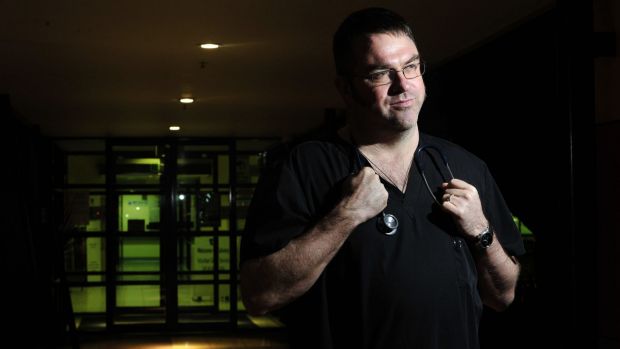
Two doctors planning to test illicit drugs at Sydney music festivals have vowed to continue their campaign despite threats of arrest and condemnation from NSW Premier Mike Baird.
Dr David Caldicott, a Canberra-based emergency medicine specialist, said the trial was a common sense precaution and the government’s resistance to pill testing had become “a laughing stock overseas”.
NSW Premier Mike Baird reaffirmed the government’s opposition to pill testing at NSW music festivals on Wednesday, one day after Stereosonic became the first major festival to welcome on-site testing in a bid to prevent overdoses and deaths.
Describing the initiative as tantamount to condoning illegal drugs, Mr Baird refuted the measure’s purported safety objectives and instead advocated abstinence from drugs as the only way to ensure safety.
NSW Deputy Premier Troy Grant has warned Dr Caldicott he may risk arrest for drug supply and manslaughter if he continues with plans to test substances provided anonymously by festival-goers for dangerous toxicity.
“I would suggest the people threatening to arrest me are more nervous about doing so than I am of being arrested,” Dr Caldicott said. “It is important that when you consider arresting someone they have actually committed a crime and quite clearly this program will not break any laws.”
Dr Alex Wodak, president of the Australian Drug Law Reform Foundation, said he was not concerned by the prospect of arrest and was in contact with other music festival organisers.
“I am not concerned by the threat of arrest and nor are any of my colleagues,” he said. “This is something we take seriously and we respect the law but this is a last resort.”
Dr Wodak, who pioneered the nation’s first legal injecting centre, said more people would die at music festivals unless the NSW government supported new measures to increase safety.
Seven people have died after allegedly taking illicit drugs at music festivals across Australian in the past 12 months.
The doctors’ stance has been welcomed by the nation’s leading drug and rehabilitation experts who signed a draft declaration to guide reform of Australia’s drug policy on Wednesday.
“Drug checking presents as a potentially valuable option for reducing harm at public events and governments should enable trials to be implemented as a matter of priority,” the declaration said.
Dr Wodak said the document, dubbed The Canberra Declaration, represented the overwhelming support for the nation’s leading drug and rehabilitation experts.
Matt Noffs, chief executive of the Ted Noffs Foundation encouraged the NSW government to take the proposal seriously and sit down with the two doctors.
“Pushing these guys into a corner and trying to criminalise them is a step too far and I don’t think it is going to work,” he said. “This is not something the government can turn away from and quite obviously more people are beginning to support the proposal.”
The pill testing trial would allow festival-goers to anonymously provide a sample of their illicit substances to a licensed chemist, who would then identify every chemical found in the pill, power or capsule.
If the chemist detects MDMA, an additional screening will confirm the dosage and any dangerous toxic levels. If something particularly hazardous is detected, warnings will be issued to festival patrons.
On Tuesday, Stereosonic festival organisers Totem OneLove Group announced their full support for pill testing but said it was contingent upon the NSW government coming on board. Dr Wodak said he would not be surprised if other music festival organisers lent their support to the trial in coming weeks.
Professor Simon Lenton, deputy director of the National Drug Research Institution, said Australian politicians needed to remove barriers to “sensible, targeted micro-policy trials such as drug testing at music festivals”.
“This will require political leadership to ensure law enforcement and health sectors facilitate the piloting and evaluation of such harm prevention initiatives in the Australian context,” he said.
Professor Ann Roche, director of the National Centre for Education and Training on Addiction, said it was time for politicians to be courageous and reform drug policies.
“We are currently at a point in history were we can take stock of what has worked and what has not,” she said. “We have the opportunity to rethink and renew some approaches that have not worked and consider scope for innovation.”
